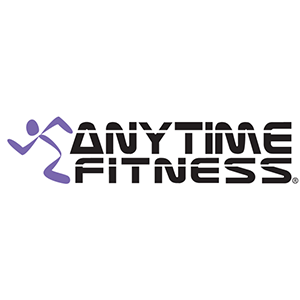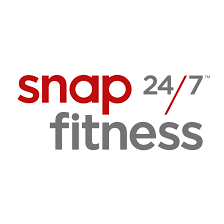Anytime Fitness Franchise in 2025: Costs, Fee & FDD
Explore the costs, benefits, and key insights of investing in an Anytime Fitness franchise. From understanding initial fees to evaluating ongoing operational expenses, this analysis offers a comprehensive guide for potential franchisees looking to enter the fitness industry.
Table of Contents:
Founded in 2002 by Chuck Runyon, Dave Mortensen, and Jeff Klinger, Anytime Fitness has become a significant player in the fitness industry. The founders aimed to create a gym that was convenient, affordable, and accessible to everyone, which led to the 24/7 model that has become the brand’s hallmark. This vision of providing fitness opportunities “anytime, anywhere” has helped the franchise grow rapidly, becoming a go-to option for those with busy lifestyles.
Anytime Fitness primarily offers 24-hour access to fitness facilities, equipped with a wide range of exercise equipment, from cardio machines to free weights. In addition to these core offerings, they provide personalized training services, group fitness classes, and wellness programs, including nutrition and lifestyle coaching. The franchise’s core customers are typically individuals who value convenience and flexibility, often professionals and busy parents who need the option to work out at unconventional hours.
As of now, Anytime Fitness boasts over 5,000 locations in more than 40 countries, making it one of the largest and most widespread fitness franchises globally. This extensive reach allows them to serve millions of members daily, creating a strong brand presence in both urban and suburban markets. The franchise’s global footprint and the ability to use any gym location worldwide are key selling points for its members.
Anytime Fitness offers a robust support system for franchisees, starting with a comprehensive training program that covers everything from gym operations to marketing and member engagement strategies. They also provide ongoing support through regional teams, advanced technology platforms for member management, and marketing assistance. Franchisees benefit from a well-established brand, a proven business model, and a community-focused approach that has been refined over two decades.
Anytime Fitness Franchise Insights
- In 2023, Anytime Fitness saw a modest growth in median gross sales, reaching $389,197, which reflects a stable and consistent performance in the market. This 3% increase suggests a positive trend in member engagement and revenue generation, making it a potentially reliable investment.
- Anytime Fitness gyms are typically smaller in size, averaging around 4,000 to 6,000 square feet, which allows them to fit into various markets, including urban, suburban, and even rural areas, maximizing market penetration.
- The franchise’s unique 24/7 access model caters to over 4 million members globally, highlighting its appeal to those with diverse and busy schedules.
Anytime Fitness Franchise Key indicators
Growth YOY (%)
0%
vs industry 5%
Total U.S. Franchised Units
2,298
3-Year Failure Rate
10%
vs industry 9%
Sales-to-Investment ratio
0.6:1
How much does it cost to open a Anytime Fitness franchise?
Understanding the potential investment size and capital requirements is crucial when considering opening a Anytime Fitness franchise. These financial commitments, including initial franchise fees, equipment costs, and ongoing operational expenses, impact the feasibility and profitability of the venture. Thoroughly evaluating these factors ensures that potential franchisees are prepared for the financial responsibilities and can make informed decisions about their ability to sustain and grow the business, ultimately contributing to long-term success.
Min & Max Investment
Opening a Anytime Fitness franchise involves several key costs, which are outlined in Item 7 of the Franchise Disclosure Document (FDD). You can see a breakdown of the costs to open a Anytime Fitness below from the most recent Item 7 below:
| Type of Expenditure | Minimum Investment | Maximum Investment |
|---|---|---|
| Initial Franchise/Development Fee | $42,500 | $42,500 |
| Travel and Training Expenses | $1,500 | $1,875 |
| Leasehold Improvements | $50,785 | $495,260 |
| 3 Months’ Rent + Security Deposit | $31,213 | $50,721 |
| Construction Management Fees | $0 | $13,500 |
| Architect/Design Fees | $13,400 | $22,150 |
| Fitness Equipment | $123,310 | $151,866 |
| Technology Equipment Package | $32,051 | $38,960 |
| Supplies | $3,500 | $3,800 |
| Interior & Exterior Signs | $20,557 | $46,775 |
| Miscellaneous Opening Costs | $9,293 | $15,333 |
| Pre-Sale/Grand Opening Advertising | $11,000 | $23,000 |
| Insurance/Bond | $2,900 | $3,450 |
| Furniture & Fixtures | $9,334 | $16,258 |
| Additional Funds – 3 Months | $46,173 | $47,673 |
| Total | $397,516 | $973,121 |
Item 7 in the Franchise Disclosure Document (FDD) is the “Estimated Initial Investment” section. It outlines the total costs a franchisee can expect to incur when starting a franchise, including the initial franchise fee, equipment, inventory, real estate, and other startup expenses. This section is crucial because it provides potential franchisees with a detailed understanding of the financial commitment required, helping them assess affordability and plan their investment strategy effectively.
Required Capital
To open an Anytime Fitness franchise, the required capital involves both the initial investment costs and a net worth requirement set by the franchise.
- Initial Investment The total estimated initial investment for an Anytime Fitness franchise typically ranges from $398,000 to $973,000. This includes startup costs such as the franchise fee, equipment, leasehold improvements, and initial operating expenses. Assuming that you will finance your franchise investment, you should plan to have 20% of the total investment amount in the form of equity (cash) for the investment.
- Liquid Assets Requirement Anytime Fitness typically requires franchisees to have a minimum of $100,000 in liquid assets. This ensures the franchisee can cover unforeseen expenses and maintain financial stability during the startup phase.
- Net Worth Requirement The overall net worth requirement for an Anytime Fitness franchisee is generally recommended to be at least $300,000. This includes the value of assets like real estate, investments, and personal property, minus any liabilities.
How much does a Anytime Fitness franchise owner make?
Calculating the salary of an Anytime Fitness franchise owner involves analyzing gross sales to determine total revenue, assessing operational efficiency to understand profit margins, and accounting for franchisor fees and additional expenses such as rent, utilities, and payroll. Effective management of these factors can significantly impact the profitability and financial success of an Anytime Fitness franchise owner. This comprehensive financial analysis helps estimate net profits, from which the owner’s salary can be derived. A clear understanding of these factors ensures accurate salary projections and financial planning for sustainable business operations.
Anytime Fitness Revenue & Gross Sales
In 2023, Anytime Fitness franchises achieved a median gross sales of $389,197, reflecting a 3% increase from the previous year. This strong financial performance underscores the brand’s robust consumer demand and potential for lucrative returns for franchisees.
Which key factors impact the average revenue performance of Anytime Fitness franchisees?
The growth of U.S. franchisee median gross sales revenue for Anytime Fitness from 2022 to 2023 can likely be attributed to several key factors. First, the increasing demand for flexible, 24/7 gym access has positioned Anytime Fitness as a convenient option for busy individuals, driving membership growth. Additionally, the franchise’s focus on personalized training and wellness programs may have enhanced member retention and engagement, leading to higher sales. The continued expansion of locations and the brand’s strong community-oriented marketing efforts have also likely played a role in attracting new members and boosting overall revenue. Finally, the gradual recovery from the COVID-19 pandemic and a renewed emphasis on health and fitness may have further contributed to this positive trend in sales performance.
Anytime Fitness Franchise Operational Costs
When managing an Anytime Fitness franchise, it’s important to consider various ongoing operational costs that will impact your budget. Here’s a comprehensive list of the key expenses:
- Labor Wages and benefits for trainers, managers, and support staff.
- Rent Monthly lease payments for your gym location.
- Utilities Costs for electricity, water, heating, and cooling to keep the gym operational.
- Maintenance Regular servicing and repairs for gym equipment and facility upkeep.
- Supplies Expenses for cleaning products, office supplies, and gym amenities.
- Marketing Ongoing costs for local advertising, promotions, and digital marketing efforts.
- Royalty Fees A percentage of your monthly gross sales paid to Anytime Fitness as franchise royalties.
- Insurance Coverage costs for liability, property, and worker’s compensation.
- Technology Expenses for member management systems, software licenses, and other tech tools that support gym operations.
These ongoing costs are essential to maintaining a successful Anytime Fitness franchise and should be carefully planned for in your financial strategy.
Anytime Fitness Franchise Fees
When opening an Anytime Fitness franchise, it’s essential to understand the ongoing fees associated with operating the business. Here’s a detailed look at some of the key fees you can expect:
- Monthly Fee Currently $799 per month per center, this fee covers ongoing support and services. The fee may increase periodically or be replaced with a percentage-based royalty on gross revenue, and it’s due on or before the first day of each month.
- General Advertising and Marketing Fee Set at $600 per month per center, this fee supports national and local marketing efforts. It’s also due on the first day of each month, and there is a possibility of an increase, capped at 2% of gross revenue.
- Grand Opening and Ramp Up Program A one-time fee ranging from $11,000 to $23,000, covering the initial marketing and promotional efforts for your new center. This is paid as the expenses are incurred, and receipts may be required to verify compliance.
- Base Technology Fee Also $799 per month per center, this fee includes support for proprietary access control software, email hosting, fitness monitoring, and security services, and is due monthly along with the other fees.
- Additional Fees There might be additional fees, such as costs for training programs, equipment maintenance, or other support services that are crucial for the smooth operation of your franchise.
Understanding these ongoing fees is vital for effective financial planning and ensuring the long-term success of your Anytime Fitness franchise.
Anytime Fitness Franchise Earnings
Based on the 2023 data provided, the median gross sales for an Anytime Fitness franchise were $389,197. For an owner-operator, the estimated earnings were $58,380, which represents approximately 15% of the gross sales. This percentage gives a good benchmark for potential franchisees to understand the possible earnings relative to sales, highlighting the profitability of operating the franchise directly.
For semi-absentee owners, who might not be as involved in daily operations, the earnings were slightly lower at $46,704, roughly 12% of the gross sales. This reduction reflects the additional costs of management and other operational expenses that occur when not actively managing the business. Overall, these figures provide a realistic snapshot of the financial returns one might expect when investing in an Anytime Fitness franchise, depending on the level of involvement.
How to Open a Anytime Fitness Franchise
If you’re considering becoming an Anytime Fitness franchisee, it’s essential to understand the process from initial inquiry to the start of operations. Here’s an outline of the steps involved:
- Initial Inquiry You or your franchise specialist submits an initial inquiry basic information about your interest and background. You should also conduct thorough research on the franchise, including seeing all of the information available on the Vetted Biz franchise intelligence platform, including access to the most recent Franchise Disclosure Document (FDD).
- Discovery Call After your inquiry, you’ll have a discovery call with a franchise representative to discuss your goals, financial qualifications, and suitability for the franchise. This is a chance for both parties to assess if there’s a mutual fit.
- Business Planning and Financing Prepare a business plan and secure financing. Anytime Fitness will require proof of financial capacity, including meeting the minimum liquid assets and net worth requirements. You may also explore financing options through third-party lenders.
- Attend Discovery Day Visit the Anytime Fitness headquarters or a local franchise to meet the team, learn more about the brand’s operations, and get a first-hand look at what it’s like to run an Anytime Fitness center.
- Signing the Franchise Agreement Once you’re ready to move forward, you’ll sign the franchise agreement. This legally binds you to the terms and conditions outlined in the FDD.
- Site Selection and Lease Negotiation Work with the franchise’s real estate team to find a suitable location for your gym. They will assist in negotiating the lease to ensure favorable terms.
- Training and Onboarding Participate in the comprehensive training program provided by Anytime Fitness, which includes business operations, marketing, and fitness center management.
- Build-out and Pre-Opening Preparations Oversee the construction and outfitting of your gym, including equipment installation and branding. During this time, you’ll also start your pre-opening marketing campaign to build awareness and attract members.
- Grand Opening Once your facility is ready, launch your Anytime Fitness center with a grand opening event. The franchise support team will guide you through this process to ensure a successful start.
- Ongoing Operations and Support After opening, you’ll begin daily operations, with ongoing support from Anytime Fitness in areas like marketing, member engagement, and operational efficiency.
Following these steps ensures a structured path to becoming an Anytime Fitness franchisee, setting you up for success from day one.
Pros & Cons
Pros
24/7 Access Model: Anytime Fitness’s unique 24/7 access appeals to members who need flexibility, creating a strong demand and consistent membership base.
Global Brand Recognition: With over 5,000 locations worldwide, Anytime Fitness has a well-established brand that can attract members and enhance marketing efforts.
Comprehensive Support: Franchisees receive extensive training and ongoing support in areas like marketing, operations, and member engagement, which can be especially helpful for first-time business owners.
Low Overhead Costs: Compared to larger gyms, Anytime Fitness typically has lower overhead costs due to smaller facility sizes and fewer required amenities, which can improve profitability.
Cons
Initial Investment: Although the initial investment is relatively lower than some other franchises, it can still be substantial, especially when factoring in costs for location build-out and equipment.
Competitive Market: The fitness industry is highly competitive, with numerous gyms and fitness centers vying for the same customer base. This could impact membership growth and retention.
Maintenance Costs: Regular maintenance and updates of gym equipment are essential to keep members satisfied, which can be a significant ongoing expense.
Member Retention: While Anytime Fitness has a strong brand, retaining members can be challenging, especially in areas with many fitness options, requiring effective member engagement strategies.


